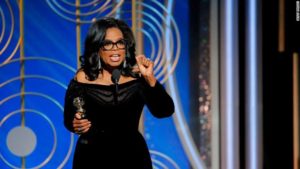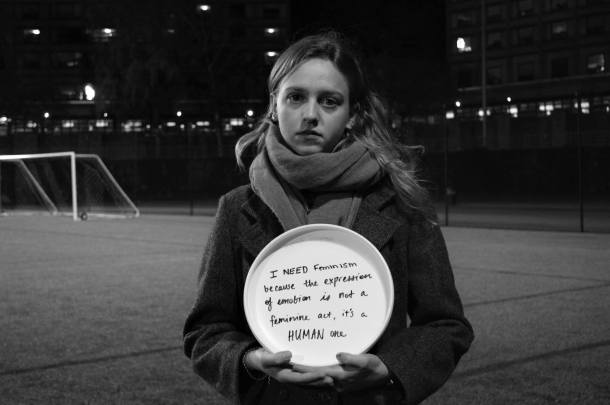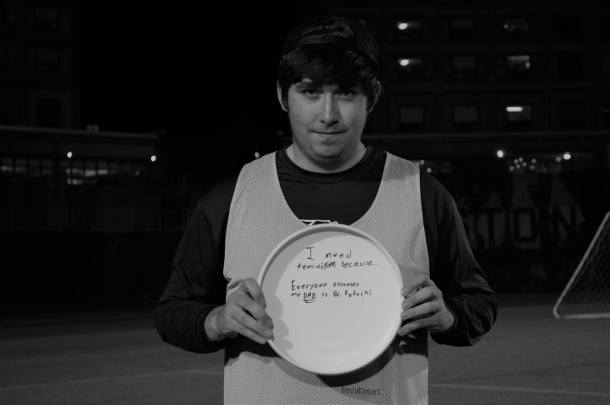| Un espacio en Australia
Todos los papeles de esta obra (Bernarda, Adela, Angustias, Martirio, Pepe) reflejan los papeles originales de “La casa de Bernarda Alba” por Federico García Lorca.
Arriba el telón para una casa en un suburbio conservador de Perth, Australia, 2017. En Australia, hay una encuesta postal este mes sobre la legalización del matrimonio entre personas del mismo sexo. Esta escena específicamente está en un cuarto oscuro que es tranquilo y vacío con la excepción de ADELA. ADELA se sienta en una silla en el medio del cuarto, escribiendo en la computadora portátil con una cara de consideración y estrés. La única luz es de la computadora, y brilla en la cara de ella.
(Entra BERNARDA, encendiendo una lámpara)
ADELA: (suspiro)
BERNARDA: (severamente) ¡Adela! ¿Por qué no estás durmiendo? Es muy tarde y no quiero ver que estás cansada mañana durante la cena para Angustias y Pepe.
ADELA: Estoy cansada, pero no puedo dormir. Necesito el espacio para pensar.
BERNARDA: ¡Eres demasiado dramática! Duerme porque nosotras vamos a tener un problema mañana si tu estás de mal humor. Es la cena antes del matrimonio de Pepe y tu hermana; es un día feliz y no me gustan ánimos malos.
ADELA: (con vacilación) Mamá, tengo algo que necesito decirte.
BERNARDA: No estás feliz por Angustias.
ADELA: ¡Qué!. . . No, mamá. Yo—buenas noches.
BERNARDA: (escéptica) Igualmente.
(Cierra la portátil. Se apaga la luz.)
El día siguiente en una cena antes del matrimonio entre ANGUSTIAS y PEPE. La atmósfera es alegre mientras la familia de Angustias y los invitados hablan sobre chismes y nuevas cosas de la comunidad.
MUJER: Ay, Bernarda, ¡es una fiesta muy grande! Y yo sé que Angustias estará bonita mañana cuando ella se casará con Pepe. Pues, ¡claro! Todas tus hijas son hermosas. No tendrán problemas para encontrar un esposo.
BERNARDA: ¡Por supuesto, no! Pero mis hijas piensan que es una idea anticuada, especialmente Martirio y Adela. Ellas no quieren novios ahora—a veces son demasiado liberales y modernas para mí.
ADELA: (un poco amarga) Martirio no es liberal. . .
MARTIRIO: Sí, estoy de acuerdo con ella. Es una idea loca.
MUJER: Bien, Martirio, si no tienes un novio, ¿Qué te gusta hacer? ¿Trabajas?
BERNARDA: Sí, Martirio ha estado trabajando para la campaña de “No” contra la loca encuesta postal. ¿Pueden creer que las personas quieran implementar la habilidad para la gente homosexual para casarse?
MARTIRIO: No es “un derecho”, es horrible. Quieren terminar la importancia del matrimonio.
ADELA: Voy a tomar una bebida.
(MARTIRIO sigue a ADELA)
MARTIRIO: (tranquilamente) Flaca—fue una noche muy tarde.
ADELA: (con sorpresa) ¿Qué?
MARTIRIO: ¿Estabas hablando por teléfono a las cuatro?
ADELA: No es importante para ti.
MARTIRIO: Dime con quien te hablaste anoche.
ADELA: Vete.
MARTIRIO: (pausa) Con una chica. (ADELA mira a MARTIRIO, están enojadas) Eres homosexual.
ADELA: Y tú eres homofóbica. Mi cuerpo y mi vida me pertenecen, y no hay nada que puedas hacer. ¡No es el lugar para crear una escena, pero yo sé que tú quieres atención!
MARTIRIO: (Mas ruidosa) Cállate. Cuando le diga a Mamá—
ADELA: ¿Por qué necesitas decir a madre? ¿Porque no tienes nada interesante en tu vida? Si estás tratando a arruinar el día con mi sexualidad—
MARTIRIO: Pues, si ninguna de nosotras tenemos un novio en el matrimonio de nuestra hermana, al menos mi amor por hombres es auténtico. Va a ser muy interesante—cuando yo le diga a madre sobre tu secreto y tu “novia”.
(Llega ANGUSTIAS con BERNARDA)
ANGUSTIAS: ¡Están ruidosas! Dime el chisme.
ADELA: No es chisme.
BERNARDA: No tengo tiempo para sus problemas.
MARTIRIO: Es solo el problema de Adela. Mi hermana loca tiene a correr a Nueva Zelanda para casarse, y todavía ella no sería normal.
ANGUSTIAS: ¡Martirio!
ADELA: ¡Basta! Mi sexualidad no es vergüenza. No debería una cuestión política. Ustedes me tratan como una enfermedad, pero pronto puedo casarse en Australia. Y, Martirio todavía sería soltera porque ella siempre pone su nariz en los asuntos de otros. (ANGUSTIAS empieza a llorar, BERNARDA está enojada) Y madre, mamá . . . he tratado a decirte, iba decirte, pero era demasiado—
Bernarda: Basta.
Corta el escenario a negro.
La escena final: un cuarto oscuro. Tranquilo y vacío con la excepción de BERNARDA, quien se siente en una silla al lado de un escritorio. ANGUSTIAS entra.
ANGUSTIAS: (con hesitación) Son las dos en punto.
BERNARDA: Sí. Deberías dormir. Necesito pensar.
ANGUSTIAS: Pienso sobre ti, mamá. Estoy preocupa por ti.
BERNARDA: Estoy bien—es cierto. Y te quiero una montaña, y necesitas volver a Pepe.
(ANGUSTIAS sale)
BERNARDA: (murmurando) Es cierto que amo a todas mis hijas. (Completando la encuesta postal sobre apoyo para el matrimonio homosexual de Australia y sellando el sobre) Sí, Adela.
Fin. |
A Space in Australia
All the roles in this work (Bernarda, Adela, Angustias, Martirio, Pepe) reflect the original roles from “The House of Bernarda Alba” by Federico García Lorca.
Curtain up to a house in a conservative suburb of Perth, Australia, 2017. In Australia, there is a postal survey this month about the legalization of same sex marriage. This specific scene is in a dark room that is quiet and empty with the exception of ADELA. ADELA sits in a chair in the middle of the room, writing on her laptop with a face of consideration and stress. The only light is from the computer, and it shines in her face.
ADELA: (sighs)
BERNARDA: (severely) Adela! Why aren’t you sleeping? It is very late and I don’t want to see you tired tomorrow during Angustias and Pepe’s dinner.
ADELA: I am tired, but I can’t sleep. I need space to think.
BERNARDA: You are too dramatic! Sleep, because we are going to have a problem tomorrow if you are moody. It is the dinner before Pepe and your sister’s wedding; it is a happy day, and I don’t like bad spirits.
ADELA: (hesitantly) Mamá, I have something that I need to tell you.
BERNARDA: You are not happy for Angustias.
ADELA: What! . . . No, mamá. I—good night.
BERNARDA: (skeptically) Same to you.
(ADELA closes the laptop. She turns off the light.)
The next day at the dinner before the marriage of ANGUSTIAS and PEPE. The atmosphere is happy while Angustias’ family and guests talk about gossip and new things for the community.
MUJER: Ay, Bernarda, what a big party! And I know that Angustias will be pretty tomorrow when she marries Pepe. But, of course! All your daughters are beautiful. They will not have any problems finding a husband.
BERNARDA: Of course not! But, my daughters think that this is an outdated idea, especially Martirio and Adela. They don’t want boyfriends now—sometimes they are too liberal and modern for me.
ADELA: (a bit bitterly) Martirio is not liberal. . .
MARTIRIO: Yeah, I agree with her. That is a crazy idea.
MUJER: Well, Martirio, if you don’t have a boyfriend, what do you like to do? Do you work?
BERNARDA: Yes, Martirio has been working for the “No” campaign against the crazy postal survey. Can you all believe that people want to implement the ability for homosexual people to marry?
MARTIRIO: It is not “a right”; it’s horrible. They want to end the importance of marriage.
ADELA: I’m going to get a drink.
(MARTIRIO follows ADELA)
MARTIRIO: (Calmly) Flaca (skinny girl)—It was a very late night.
ADELA: (surprised) What?
MARTIRIO: Were you talking on the phone at four?
ADELA: It’s not important to you.
MARTIRIO: Tell me whom you were talking to last night.
ADELA: Go away.
MARTIRIO: (pause) With a girl. (ADELA looks at MARTIRIO, they are mad) You are a lesbian.
ADELA: And you are homophobic. My body and my life belong to me, and there is nothing that you can do. It is not the place to create a scene, but I know that you want attention!
MARTIRIO: (louder) Shut up. When I tell Mamá—
ADELA: Why do you need to tell our mother? Because you do not have anything interesting in your life? If you are trying to ruin the day with my sexuality—
MARTIRIO: Well, if none of us have a boyfriend at our sister’s wedding, at least my love for men is authentic. It is going to be very interesting—when I tell our mother about your secret and your “girlfriend”.
(ANGUSTIAS arrives with BERNARDA)
ANGUSTIAS: ¡You are so loud! Tell me the gossip.
ADELA: It’s not gossip.
BERNARDA: I don’t have time for your problems.
MARTIRIO: It is only Adela’s problem. My crazy sister has to run away to New Zealand to get married, and she still would not be normal.
ANGUSTIAS: Martirio!
ADELA: Enough! My sexuality is not shameful. It should not be a political question. You treat me like an illness, but soon I will be able to marry in Australia. And, Martirio still will be single because she always puts her nose in other people’s business. (ANGUSTIAS starts to cry, BERNARDA is mad) And mother, mamá . . . I had tried to tell you, I was going to tell you, but it was too much—
Bernarda: Enough.
Cut the scene to black.
The final scene: a dark room. It is quiet and empty with the exception of BERNARDA, who sits in a chair next to a desk. ANGUSTIAS enters.
ANGUSTIAS: (hesitantly) It is two o’clock.
BERNARDA: Yes. You should sleep. I need to think.
ANGUSTIAS: I think about you, mamá. I worry about you.
BERNARDA: I am fine—truly. And I love you a lot, and you need to return to Pepe.
(ANGUSTIAS leaves)
BERNARDA: (murmuring) It is true that I love all my daughters. (Completing the postal survey about support for marriage equality in Australia and sealing the envelope). Yes, Adela.
End. |









